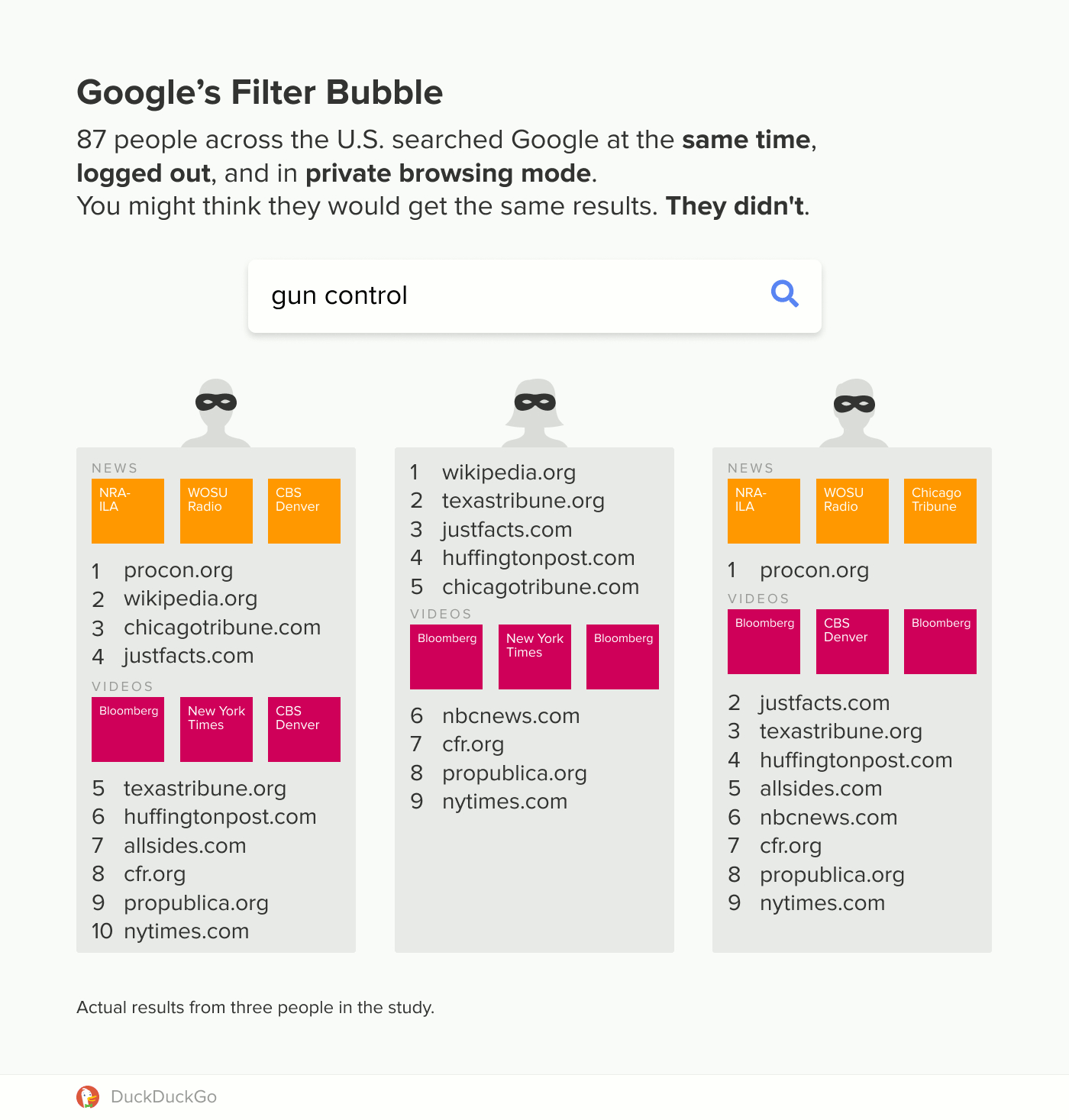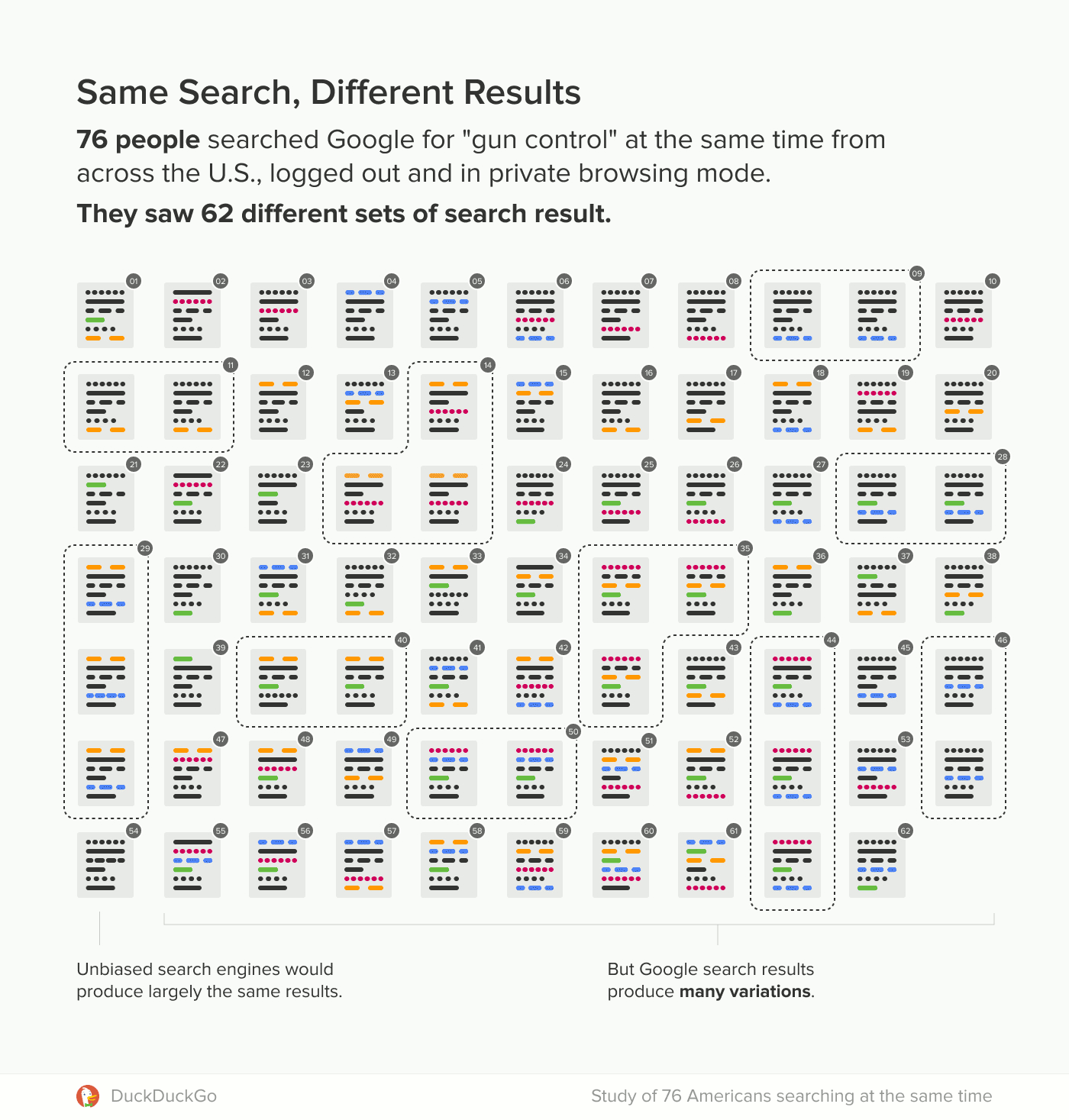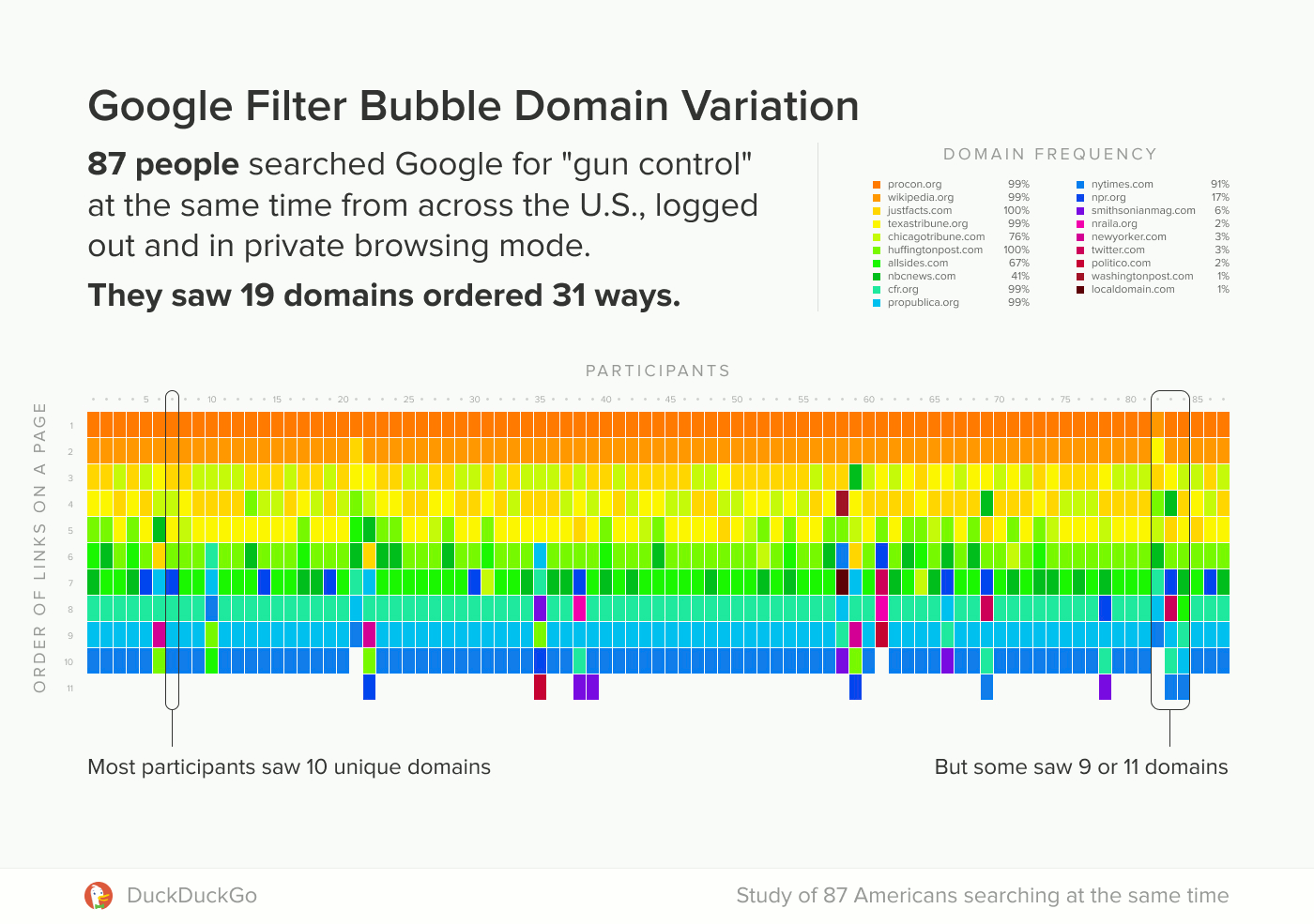
There is no doubt that Google is the largest and the most popular search engine on the web.
With its massive reach, the search engine giant has been able to influence billions of people around the world by making them see what Google wants them to see.
This is also called a "personalized search" in which Google shows the things that are the most relevant to users. Google does this search results personalization by considering many factors, including data about users' previous search queries, location and others.
How Google Search works is sophisticated, and this is for a good reason as Google is reigning the industry.
For those users who don't want Google to track them wherever they browse the web, they can use what it calls the 'Incognito Mode'. This particular feature disables everything from cookies to search history.
What this means, users going Incognito on Chrome, won't send data to Google.
This is what people think, but DuckDuckGo the privacy-oriented search engine, thinks otherwise.
Related: How Search Engines Process Your Queries Determines Your Satisfaction

A study from DuckDuckGo concluded that Google search results are uniquely tailored to users, even when they’re logged out or browsing in Incognito Mode.
The company explained this in detail on its post, saying that participants across the U.S. have searched a term at the same time while logged out, or in Incognito Mode. Logically, search results should be similar. But according to DuckDuckGo, they were still unique to different users.
Additionally, links and their orders also varied. What this means, some people saw some links, while others didn't.
According to DuckDuckGo, this is worrying as Google's Incognito Mode, which should not create filter bubbles Google is known for, still does what Google does best: personalization.
Incognito Mode or logging out hardly made any effect on search results.

Incognito Mode is marketed as a feature which allows private browsing, preserving anonymity to Google. This finding by DuckDuckGo, demonstrates that Google still tailors search results regardless of what the browsing mode users choose.
This is like Google in giving a false sense of security.
Google has its own claims to counter this research, saying that:

What Google is trying to say is that, it's nearly impossible for anyone using its search engine to get unbiased search results.
This is because Google uses a lot of factors, like time of day, devices used, location and more to deliver its search engine results pages.
But what comes in mind is that DuckDuckGo that was founded by Gabriel Weinberg, is a privacy-focused search engine that wants to be the anti-Google search engine. In short, DuckDuckGo is a direct competitor to Google, so this research may or may not be the actual truth.
Still, DuckDuckGo’s findings have shown that Google may have a sneaky trick in its ecosystem.
After all, it's no secret that Google uses everything it's capable to muster to deliver one of the best personalization a web service can ever give.